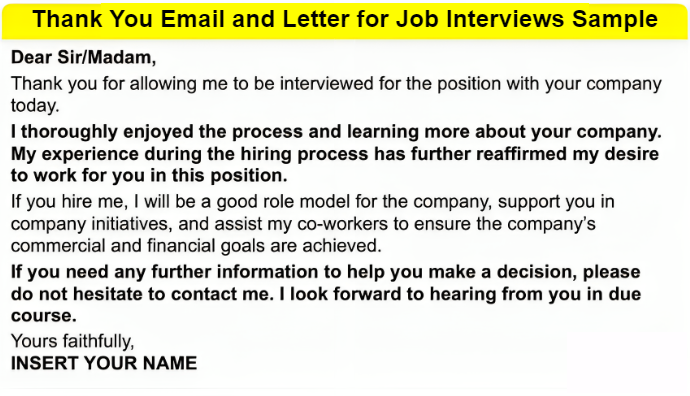In this very important job interview guide, you will learn how to INTRODUCE YOURSELF in your job interview. How you introduce yourself at the start of your interview will determine whether you pass or fail. Therefore, if you have an interview soon for any job or company, read this guide well because the tips, advice and sample introduction will help you pass at the first attempt.
To help you introduce yourself in your job interview, this guide will cover the following three things:
- What will happen at the start of your job interview? You will learn what the hiring manager will say to you and what you should say in response.
- Four things you must include in your job interview introduction.
- A brilliant job interview introduction sample that is guaranteed to get your interview off to a positive start.
What will happen at the start of your job interview?
At the start of the interview, the hiring manager will welcome you to the interview. Do not sit down in the interview chair until they invite you to do so. This demonstrates good manners.
Once you are sat down, the hiring manager will say to you something like this:
“Welcome to the interview. How are you today?
You should say this in response: “I am very well, thank you. I’m excited about the possibility of working for your company, and I’m looking forward to the interview.”
Saying that at the start of your interview shows the hiring manager you are polite and respectful, positive, and that you are looking forward to sharing details about your skills and qualities and how you can add value to their company.
The hiring manager will then commence the interview, and the first question they will ask you will either be, “Please introduce yourself or tell me about yourself”. These interview questions are designed as ice breakers. They get you talking and they give you the opportunity to speak about your skills and strengths and how you can add value to their company.
What to include in your job interview introduction
Below is what to include in your job interview introduction. When you introduce yourself at the start of your interview, you should talk about the following four things:
- The skills you have that match the job description.
- The experience you can bring to the role or your educational qualifications, if you have no previous work experience.
- Details of any achievements you have gained in your life so far.
- The type of person you are and what you will do in the role if they hire you.
You will notice that those four things stand for S.E.A.T. Skills, experience or educational qualifications, achievements, and the type of person you are. You can easily remember the S.E.A.T structure for job interview introductions because you will be sitting down on a S.E.A.T at your interview.
How to Introduce Yourself in Interview Sample Answer (Introduce Yourself & Tell Me About Yourself)
Below is a brilliant example Job Interview Introduction that will help get your interview off to a brilliant start. This interview introduction can be used for when answering either, introduce yourself or tell me about yourself.
“Thank you for this opportunity. My name is [Insert Your Name], and before I applied for the position, I read the job description to ensure I have the skills, knowledge, and experience to meet the role’s demands.
My skills are an excellent match for the position and the industry. I am a diligent team worker and a confident problem solver, and I always prioritize my work to meet my employer’s objectives.
My experience is diverse, and it will empower me to hit the ground running in the role. I have experience working on small and large teams, completing time at sensitive projects, and delivering excellent customer service.
I am a high achiever. In my last job, I was praised by my manager for my flexibility with my job description and how I contributed ideas during team meetings to help the business thrive.
If you hire me, I will be the type of employee who embraces change, takes ownership of my professional development, and supports my co-workers to ensure the business becomes the market leader.”
That’s a brilliant job interview introduction that is perfect for the interview questions, introduce yourself, and tell me about yourself.
 Jobsscholar Jobs Search | Education Hub | Scholars Portal
Jobsscholar Jobs Search | Education Hub | Scholars Portal

